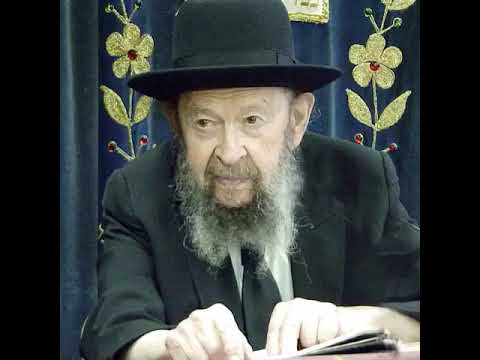HaRav Avigdor Miller zt"l

Towards his old age, during the period before Rosh Hashonoh, he was approached by a disciple who asked, 'Teach me, my master, how I can prepare myself properly for the Yom Hadin.'
HaRav Miller answered, 'Smile! Be cheerful.'
The student thought that due to his advanced age, his teacher had not understood the question. He had not asked advice concerning Purim, after all, but about the Day of Judgment. When he repeated his question, HaRav Avigdor gave the same reply. 'Smile!'
But then he explained his answer. 'You probably think that I misunderstood your question because of my age. But I did understand it, in fact. Let me explain with an example of a person who owns a large chain of stores, each managed by his employees.
'At the end of the fiscal year, however, the owner takes time off to examine everything and see if indeed, everything is running smoothly. He may decide that one outlet has too many employees, another branch may be lacking sufficient advertisement, while a third may be lacking enough merchandise. And so he presents his finds to the various branch managers.
'The first one may say: True, there are too many workers but don't fire so and so because he brings many customers from the outside due to his pleasant manner and genuine smile. He helps the customers find what they are looking for and justifies his salary.'
And Rabbi Miller continued: 'Rosh Hashonoh is the day when Hashem inspects how things are running and makes an inventory and evaluation of everything that has been going on for the past years. Sometimes, he decides that certain workers can be disposed of since they provide no benefit to the world. But He will still decide to keep on those who are kindly to their fellow man. As so, you see that this is my personal advice to you for the upcoming Judgment.'
Q. How do you explain this? Precisely a smile is relevant to Yom Hadin?
We are at the beginning of Elul, and as has been noted by the ancients, it is a time of "I am to my Beloved and my Beloved is to me." This verse ends with, "...who tend [their flocks] amongst the roses."
There are three kinds of shepherds: one who stays with the flock and watches them by day and night. There are shepherds who also have watchdogs to protect them from marauders. Then there are shepherds who keep their flock within a fence of rose bushes which is the best form of protection.
If we want to avail ourselves of "Dodi li - my Beloved is to me," then we must arouse the scent and protection of rose bushes.
HaRav Zilberstein also says that we must embrace the teachings of Yeshivas Slobodka, as did HaRav Avigdor Miller.
The gemara in Shabbos says that a person should wash his face, hands and feet each day in honor of his Creator. Rashi explains: Because Man was created in the form of Hashem. The Midrash says that when Hillel Hazokein took leave of his talmidim, they would ask him where he was going. He would say: I am going to perform a mitzvah.
What mitzvah?
He would reply: To bathe in the bathhouse.
And that's called a mitzvah? they would ask.
Yes, he would reply. Just as there is a special servant appointed to clean the statues of the king placed in public squares and theaters, so must we, who are created in the image of Hashem, do so as well.




